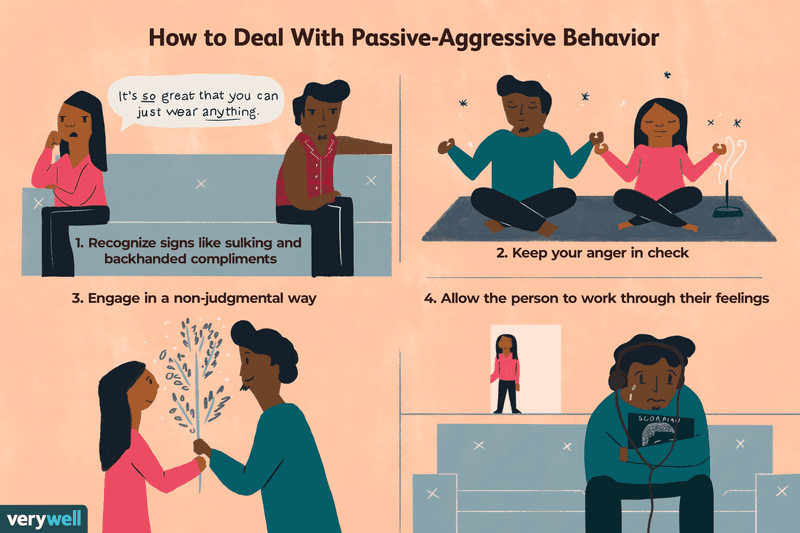Parents Who Aren’t Connected With Their Adult Kids Tend to Show These 17 Traits
Family dynamics? Complicated. Always have been.
If your relationship with your adult kid feels a little off lately—or straight-up distant—you’re not the only one. Sometimes it sneaks up over the years. Other times, it’s been building quietly under the surface for a while.
And honestly? It’s not always easy to explain what happened. You just feel it.
It’s not necessarily about big fights or dramatic falling-outs. Often, it’s the small stuff: a comment that didn’t land right, trying to help and being seen as controlling, or missing the mark when it comes to really listening.
So, what’s going on? Here are 17 traits that tend to show up in parents who aren’t as connected to their adult children. Recognizing a few might just help you make sense of where things stand—and maybe even shift them.
1. The Incessant Critic

Always finding fault, never satisfied. This is a parent whose words cut deeper than any blade. Remember that time when your kid brought home the first piece of art from school? Heart swelled with pride, only to be met with a dismissive comment about staying within the lines.
It’s this kind of criticism that builds walls between hearts. If you can’t see past imperfection you’ll end up alone, wondering why your children don’t call.
If this sounds familiar, maybe it’s time to pause and listen. Truly hear what your child says, without the urge to correct or judge. It’s amazing how a simple change in communication can mend years of hurt. Let your children know that you see them, just as they are.
It’s never too late to replace criticism with curiosity.
2. The Emotional Vacuum

Some parents seem to lack emotional thread altogether. Imagine sitting across the table from someone who seems to be there physically but is emotionally absent. Perhaps without realizing it, you created an emotional void that your children feel compelled to fill.
It’s exhausting! Always trying to raise warmth from someone who seems permanently chilly.
Your children grew up feeling unseen and unheard. So, they avoid family gatherings to escape the emotional drain. But why does this happen? Maybe, you have experienced emotional neglect in your upbringing. Sometimes you carry the cycle forward unwittingly.
Reconnect with your child. Not through grand gestures, but through simple, heartfelt conversations. Ask about their day, share a laugh, or reminisce about a shared memory. Every small connection counts.
3. The Control Enthusiast

It’s the only way you know how to relate. I get it. But, think about how suffocating it must feel to have your every move scrutinized?
You think you’re acting out of love, yet the tighter you grip, the more your children wriggle free. It’s a paradox, isn’t it? Love that feels like a straitjacket. If you’ve ever felt like a puppet under your parent’s watchful gaze, is it possible you’re doing it to your children?
Think about what fuels this need for control. Is it fear of losing relevance or a reflection of your own insecurities? Whatever the reason, abandon control and trust your child’s judgment. Let them make their own mistakes and learn from them. After all, isn’t life about growing and evolving?
4. The Perpetual Victim

Do you hold onto the belief that you’re wronged by your own children? At family gatherings you talk about how much you’ve sacrificed or how misunderstood you are. Does this sound familiar? Always the martyr, never the hero.
Your children feel burdened, guilty for living their own lives. They distance themselves, not out of neglect, but self-preservation.
Time to reflect on whether these “sacrifices” were choices made with open eyes. It’s about moving from, “Look at all I’ve done,” to, “Look at how far we’ve come.” No one wins in a perpetual blame game.
5. The Oblivious Narcissist

Your conversations are monologues, rarely dialogues. Can you imagine trying to share your achievements, only to have them overshadowed by your parent’s latest triumphs? It’s a one-sided dance where the spotlight never shifts.
Your children feel like props in someone else’s play, their own stories untold. Imagine the loneliness of being surrounded by people, yet feeling invisible.
It’s a wake-up call to shift focus. Genuine interest in your child’s world can transform your relationships. Embrace empathy and share the stage.
6. The Passive Aggressor

Hidden barbs, veiled criticisms—passive aggression is the language you speak fluently. It’s the sighs instead of words, the compliments with a sting in their tail. Remember the time your kid was excited about a new job, only to hear, “I hope it lasts this time” whispered under your breath?
Your children learned to brace for impact. Who knows when the next dart will fly? It’s exhausting, constantly decoding the unspoken.
Yet, you see yourself as a peacemaker, am I right? You’re avoiding confrontation at all costs. But this peace is an illusion. Say what you mean without cloaking it in sarcasm or insinuation.
There’s the difference between walking on eggshells and walking hand in hand.
7. The Judgmental Juggler

Is the world black and white for you? No room for the colors of personality? You weigh every action, every decision, as if balancing scales of morality.
Imagine your child sharing a personal choice, only to be met with a disapproving silence or a questioning eyebrow. Maybe you don’t have to imagine.
This leaves your children second-guessing their worth. So, let go of preconceived notions of “right” and “wrong” and accept that everyone walks their own path.
8. The Unyielding Traditionalist

For you, tradition is a guiding star. A Thanksgiving dinner where the menu never changes and where roles are rigid. It’s a comforting routine for some, but stifling for others who yearn for innovation.
Your children feel trapped in a time capsule. Embrace the new without losing the past. It’s about being open to change. Tradition can coexist with progress.
Encourage family discussions about incorporating new ideas into old customs. This doesn’t mean discarding what was, it’s about enriching it with fresh perspectives. Celebrate both the old and the new, and watch as your family legacy evolves into something beautifully diverse.
9. The Absent Listener

Listening is an art you, unfortunately, never mastered. You hear words but miss the meaning. You nod along without truly engaging. Put yourself in your children’s shoes and think of this — your children sharing a heartfelt moment, only to realize you are elsewhere, lost in your own world. Frustrating as heck.
Feeling a little lost? Ok, start with this: be present. Like, actually present. Listen—not just to the words, but to what’s underneath. The tone. The feeling. The “I’m fine” that clearly means “not fine.” Ask questions. Be curious. Let your kid talk without jumping in with advice or a life lesson.
Sounds simple, right? It is. And it works.
Remember, it’s not about having all the answers. Sometimes, it’s enough just to be there, really be there.
10. The Defensive Denier

Is your child’s every suggestion perceived as an attack? Are they trying to express feelings, only to be met with excuses? It’s life-sucking, believe me. Draining for them, and honestly, not great for you either.
Here’s the thing—nobody’s perfect. Not you, not them. And that’s okay. Really. What matters is how you handle the messy stuff.
Try opening up to feedback—not as a personal hit, but as a chance to grow. A chance to do better, not just for them, but for yourself too. Drop the need to always be right. Lower the defenses. Let the conversation breathe a little. That’s how connection starts.
It’s the difference between building walls… or building a bridge and meeting halfway.
11. The Overbearing Protector

Protection is instinctive, but it can suffocate if it’s overwhelming. If you’re driven by fear, you start to shield your children from life’s challenges. It’s like living in a cocoon! And every decision is made for you.
No wonder they feel like they’re in a cage. The paradox is that in trying to protect, you end up pushing your children away. Let it go. (Did you just start to sing this last line? Ha-ha, me too. Back to the matter in question.)
You need to trust in your child’s ability. It’s not about abandoning them. It’s about empowering them. Step back and allow your child to step forward.
12. The Guilt Tripper

If you’re resorting to guilt trips to maintain influence, stop. You don’t deal with the bad guys, it’s your children we are talking about. Let me paint a picture to you: subtle reminders of what you’ve done for them, how you’ve sacrificed — used as a tool to sway their decisions. It’s a heavy burden, don’t you think?
Your kids carry the weight of your expectations. Alongside the feeling they owe you for living their own life. Stop using guilt as leverage and reconsider. It’s not love if you have to bind someone!
Let your child know they’re free to live their life, to make choices without the shadow of guilt. You won’t be their shackles.
13. The Competitive Companion

Is competition healthy or toxic depends on so many things. But, if you treat your children as rivals rather than allies, you have a problem. It’s a game where the stakes are always high and every achievement becomes a benchmark for rivalry.
Competing for approval, for love, in a game you never signed up for? Not so great.
If you’re trapped in this competitive loop, the challenge is to embrace collaboration. Celebrate your child’s successes as a shared victory. Life isn’t a zero-sum game — there’s room for everyone to succeed.
14. The Perfectionist Pressure Cooker

Stop setting the bar in the stratosphere. Your kids don’t need that kind of pressure. No one does. When the standard is perfection, the stress never quits.
They feel it. You feel it. Everyone’s exhausted. And for what? Burnout? Anxiety? A gold star no one actually hands out?
Here’s the truth: real growth comes from messing up, learning, and trying again. That’s the good stuff. So cheer on the effort, not just the outcome. Forget perfect—it’s not real anyway. The journey’s where the magic is. Let them live it.
15. The Emotional Manipulator

Recall a scene where tears are tactics and emotions used as leverage? It’s a delicate dance, isn’t it? Trying to navigate a relationship where feelings are weapons, not expressions.
For your children, life becomes a balancing act, constantly tiptoeing around triggers. And what you don’t see is that manipulation breeds resentment, not affection.
Let your child know they’re free to express their feelings without fear of retribution. Remember, I said it earlier — build bridges, not walls.
16. The Unforgiving Dictator

Rules provide structure, but only to an extent. When you become dictators in your own homes, not so much. Can you see the weight of living under a constant cloud of scrutiny, where every action is judged against a rigid set of rules? It’s tiring, for sure. Walking on eggshells, fearing the wrath of disobedience.
Embrace flexibility. Rules are meant to guide, not imprison. They can be discussed and adjusted to fit evolving needs. For the tenth time — life isn’t about control. It’s about collaboration and mutual respect.
Tell your kids they’re valued for who they are, not just what they do. Tell them you love them no matter what! I mean, love is the ultimate goal.
17. The Self-Sacrificing Martyr

It’s not a badge of honor, so stop with the role of martyrs in your own stories. Not every action is a sacrifice and not every choice a burden borne for others. That’s cruel. Your children didn’t ask to be brought into this world. You know what it takes to raise a kid. So just stop. Sorry for the bluntness but there’s no better way to say this.
That’s not love—it’s emotional debt. And it’s heavy. For everyone. Here’s a wild idea: choose joy instead. Support should go both ways. Sacrifices? Sure, they happen. But they should come from love, not guilt.
This isn’t about keeping score—it’s about building something real, together. Show your child they’re treasured in spite of everything you’ve given up. Trade the martyr act for real connection. That’s where love actually grows.







